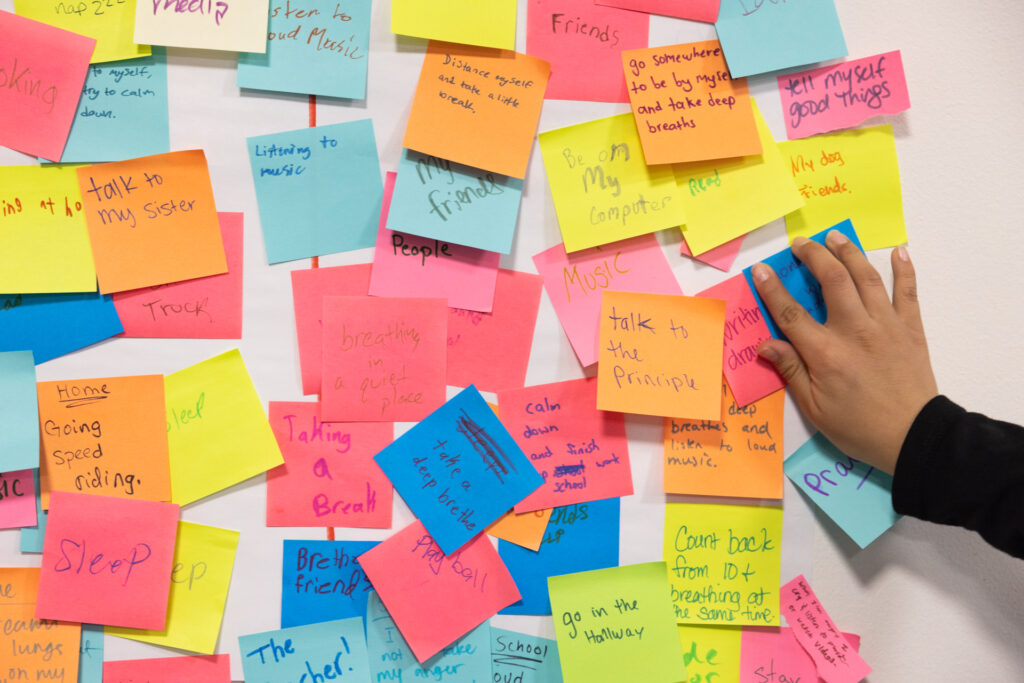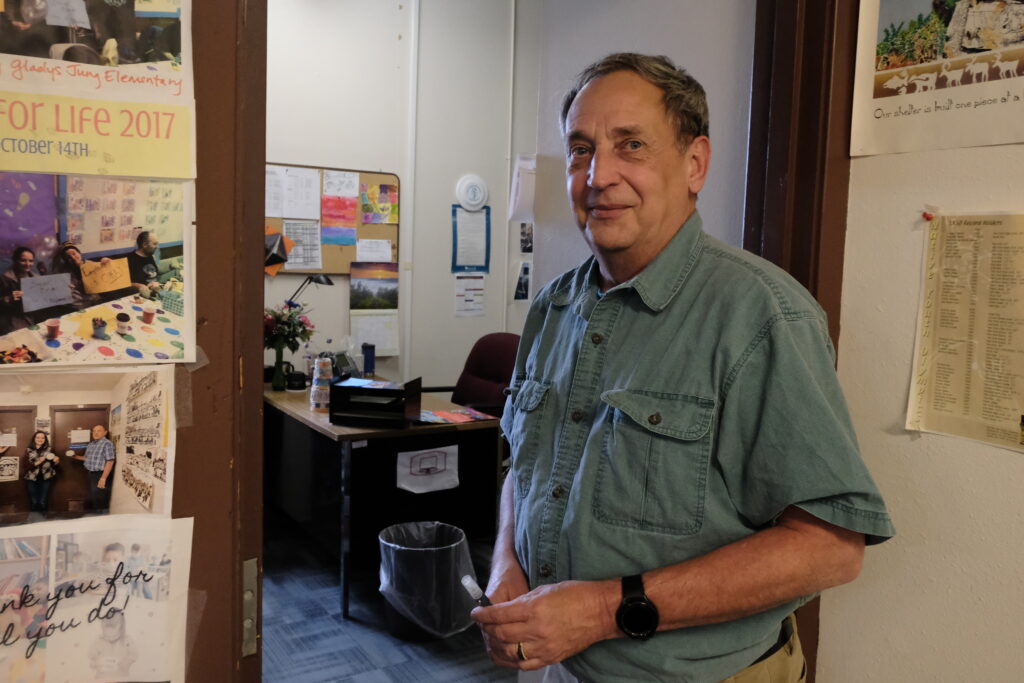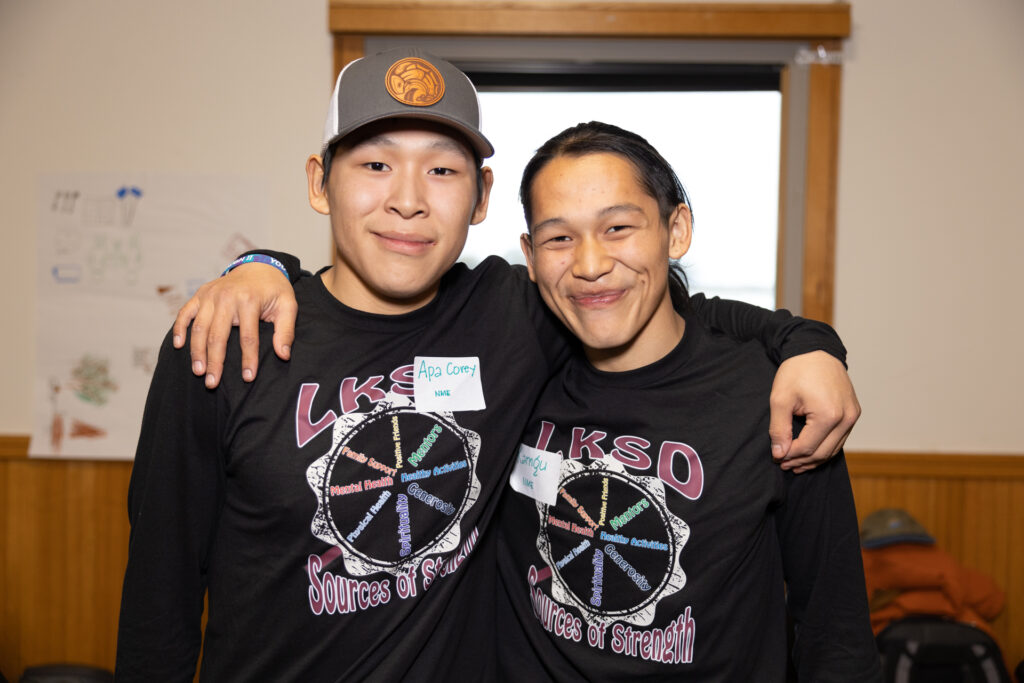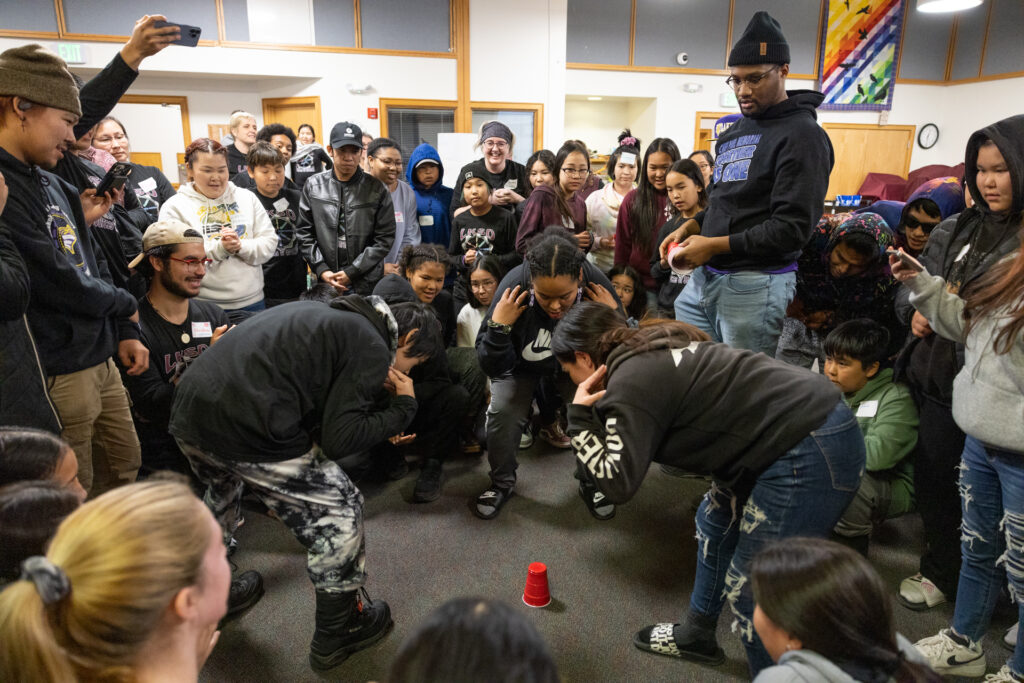Suicide-Prevention Program Helps Alaska Students Identify Their Own Strength
How one school district pits cultural, personal strengths against adversity.
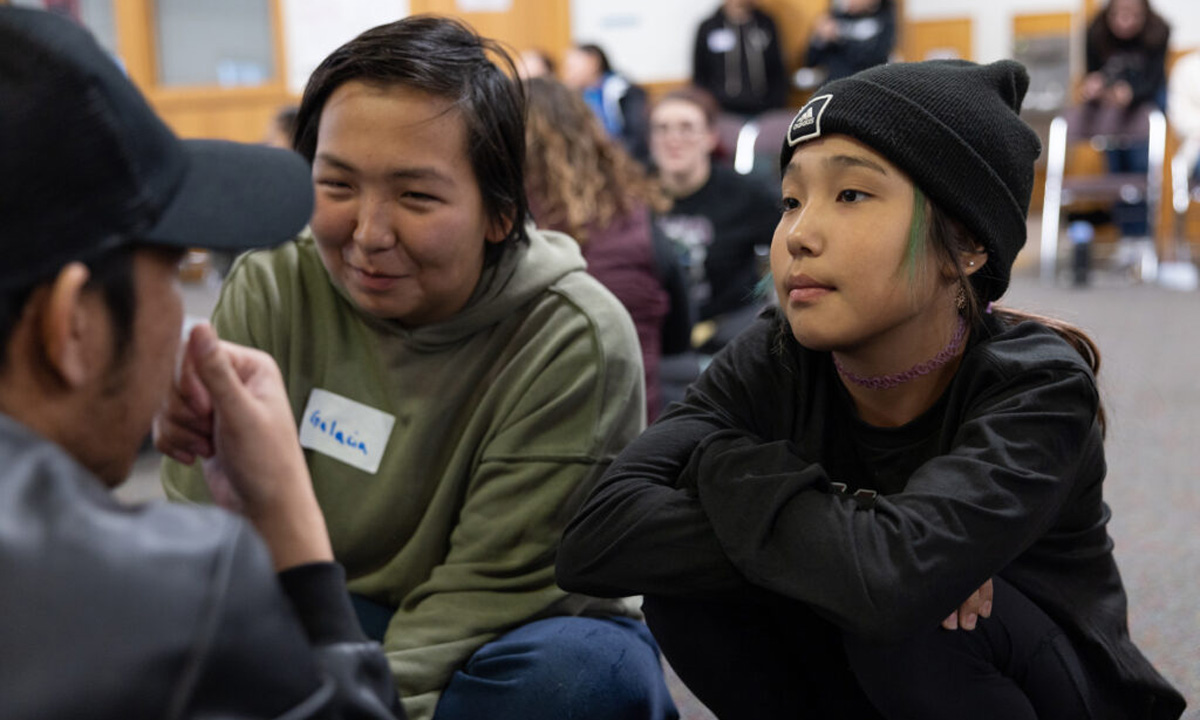
Get stories like these delivered straight to your inbox. Sign up for The 74 Newsletter
Student leaders from 18 communities in the Lower Kuskokwim School District gathered in the Bethel Cultural Center on Tuesday to talk about a subject that isn’t usually the focus in a classroom: the students’ strengths.
Everyone was a little quiet at first — the students had flown into Bethel from all over a region of the Yukon-Kuskokwim Delta that is roughly the size of West Virginia.
But they started to open up when the instructor, Robyn Weiner, split them into groups with poster paper and markers and asked them to draw things that give them strength. A group from Kasigluk, a village to the northwest of Bethel, filled the poster paper with dance fans, boats, fishing nets, basketballs and berry picking.
The students were all from grades 6 through 12, and they were there because their communities had identified them as leaders capable of learning the lessons of a suicide prevention program called Sources of Strength. They will be responsible for bringing the lessons of the day home to their peers.
The program teaches students to identify the factors that make them resilient, and shows them how to create their own pathways to healing in times of stress or trauma. The program is in its third year in the district, and administrators say it addresses the hardest issues youth face with positivity.
The program’s aims are weighty, but the word suicide was not mentioned at all in the five-hour session. The material focuses instead on resilience and personal values. Students got to share the things that bring them joy and make them feel supported. They laughed, and even played games that had the whole room smiling and cheering. That joy was the program’s medicine, and the fact that it came from the students themselves was the point.
Grief
Jim Biela, an itinerant social worker for the district, has traveled to several villages in the region regularly for the past 19 years. And in his counseling sessions lately, he said, there’s been a concern among his students that stands out.
“Grief. The past couple of years it’s been more grief. Understanding grief. They’ve all been affected by death,” he said.
Biela said some students have lost parents to murder and suicide: especially difficult deaths to process. But he said he worries about the effects of losing a parent for any student.
“They don’t have anybody to show them the culture and traditions. And they struggle with their identity,” he said.
The wall above Biela’s desk is covered in artwork and pictures of students he has counseled and befriended. He pointed out several who have died from suicide, then pulled one image off the wall and looked at it for a moment: “I knew him since he was one year old,” he said, before gently laying it down on his desk.
Alaska has the third-highest suicide rate in the nation; youth who are exposed to suicide are more likely to attempt it. Suicide was the leading cause of death among Alaska Native and American Indian people between the ages of 10 and 24 years old in the state, according to the most recent two years of data from the Centers for Disease Control and Prevention.
Biela said he has seen Sources of Strength work to ease the effects of grief in the region — the district began offering the program to all schools after it was successful in Nightmute. Biela said last year, after the program, the Nightmute students’ grades even shot up.
Biela largely credits two students, Cory and Colby George, with leading Nightmute through the program after a tragic loss. The brothers are now about to graduate high school and they came to the training in Bethel.
Community change through youth leadership
Sources of Strength is so named because its premise is that a path to healing can be found through eight factors: Mental health, family support, positive friends, mentors, healthy activities, generosity, spirituality and physical health.
As Weiner, the instructor, explained each source and gave examples, Lillian Kiunya, another itinerant social worker from Bethel, translated them all into Yup’ik. After each strength was explained, the students were invited to share what part of their lives corresponded to it.
Physical health meant basketball and Native Youth Olympics for many students. For one young woman, mental health was berry picking. For another, family support was the grandmother who adopted her after her mother died. For Colby George, he last found the strength of his spirituality in seal hunting: “I was scanning the water and I felt instant calm before the negativity comes,” he said. “Then I was enjoying the view and the sun.”
Two years ago, when he and his brother Cory brought Sources of Strength to Nightmute, they used the mental health example of Cory’s guitar, his source of strength. “I was trying to calm my mind and drawing a guitar and it really helped me,” he said.
He said the program gave them hope. “We were going through a tragic event and we found a way, like, how to be with it. And it really helped us, it made us be confident,” Cory said.
He said after the presentation, people in their village rallied around them. “After that, everybody was coming to us, talking positive to us, making us laugh,” he said.
Colby said the community response was impactful for him as well: “People that had brighter smiles than before came up to me,” he said. “Even other villages, they were coming up to us and saying quyana for bringing this up.”
The brothers even started a basketball team at the school — physical health — that went to district finals in its first year. “I saw that the kids were getting on track,” Cory said.
The brothers are 19 now, so they can’t play in games with the team, but they can practice with the others. For Colby, basketball is another source of strength.
“I love how basketball could tickle my heart,” he said, with a big smile.
‘This is really powerful’
Meghan Crow, the lead social worker for the district, said the program is a good fit for the area. It is aimed at suicide prevention, but Crow said that the resilience building students learn is applicable in other areas of their lives as well.
“We deal with a lot of crisis,” she said. “And we have a lot of really isolated communities. There’s just been a lot of assimilation, cultural change imposed upon communities. I think that’s something that our communities have struggled with.”
She said the school district is also an organization imposed on communities, so she wants to make sure it promotes strengths that exist within them already. She said the Sources of Strength curriculum allows youth to match sources of strength to Yup’ik values.
“It’s very open to cultural interpretation, and to use those strengths and match them to strengths of our culture and our communities here,” she said.
Lower Kuskokwim Superintendent Kimberly Hankins spent the morning at the training. The district began the program in 2020, when students could not travel.
“But even though it was on Zoom, we saw the response. And we thought, ‘This is really powerful.’ And so we’ve been continuing to invest in it and grow it over time,” she said. The district had its first in-person training last year.
Only a handful of schools in the district have not yet had training. At the end of the day, as students ate lunch and began to gather their overnight bags for the flights home, Hankins and Crow huddled with the instructor to figure out how to bring the program to the schools that were left.
Alaska Beacon is part of States Newsroom, a network of news bureaus supported by grants and a coalition of donors as a 501c(3) public charity. Alaska Beacon maintains editorial independence. Contact Editor Andrew Kitchenman for questions: info@alaskabeacon.com. Follow Alaska Beacon on Facebook and Twitter.
Get stories like these delivered straight to your inbox. Sign up for The 74 Newsletter


